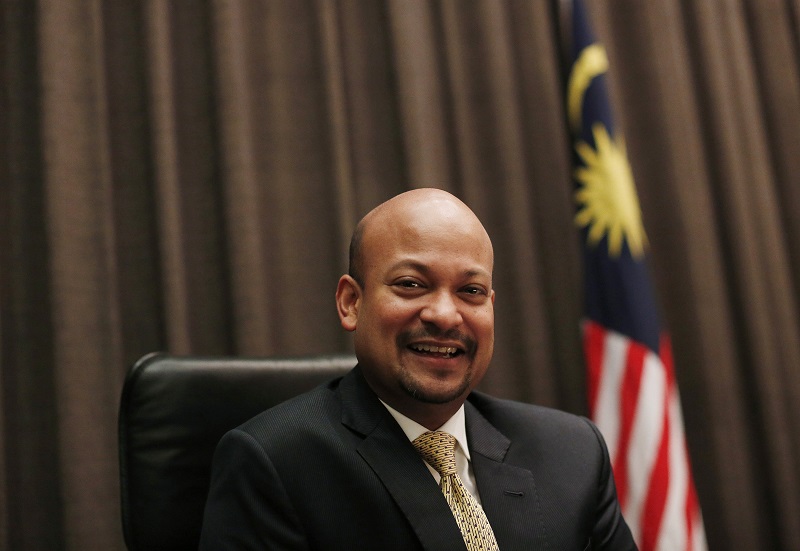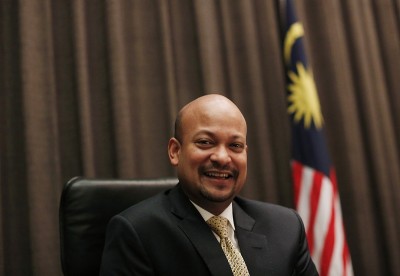
Investigators into the Malaysian development fund 1MDB’s 2009 joint venture with the company PetroSaudi International have concluded that the partnership lied to its banks and Bank Negara Malaysia by confirming that the company Good Star Limited was a 100% subsidiary.
In fact Good Star Limited is a third party concern, controlled by the businessman friend of the Prime Minister, Jho Low, whom we have shown was secretly directing the fund’s investment decisions.
It leads to possible charges of “cheating”, write the investigators in a document in our possession.
A “possible offence by [1MDB]” , according to the document, includes:
“Cheating Bank 2 [sic] by stating that the account in RBS Coutts Bank belongs to 1MDB PetroSaudi’s parent company[PetroSaudi International]”
On a separate occasion the investigators conclude that during the transfer of an alleged USD$700 million ‘loan repayment’ to PetroSaudi 1MDB stood culpable of the “possible offence” of:
“Cheating Bank 1 [sic] by confirming that Good Star is 100% owned by 1MDB PetroSaudi”.
The papers in Sarawak Report’s possession show that the investigators have identified at least three separate occasions on which these and other transgressions were made, which appear worthy of prosecution.
Money was not used for intended purposes in violation of FEA rules
In particular, the investigators concluded that money passed into the joint venture was:
“not used for the intended purposes under Foreign Exchange Administration (FEA) if 1MDB PetroSaudi cannot show that the money was transferred from Good Star to the joint venture”.
In fact, subsequent documentary information passed to Sarawak Report shows that over USD$500 million was passed from Good Star to an account at the Swiss Bank BSI in Singapore, which was beneficially owned by Jho Low.
Today it has been further reported that Mr Low bought two penthouses in the City State of a combined value of RM154 million, just one of several examples of his conspicuous spending across the globe.
In a related line of enquiry the investigators examined the evidence that USD$260 million from a separate loan of USD$500 million, supposedly made also to the joint venture, was then diverted to buy out the Taib family’s UBG bank.
“We are investigating whether the money (USD$260 mil) was used to buy UBG shares through Javace Sdn Bhd. If it is true [1MDB] is in breach of FEA rules and possible cheating to Bank Negara Malaysia”, says the report, because this was clearly not the stated purpose for borrowing and then lending the money.
Why did the banks fail to report suspicious transaction reports?
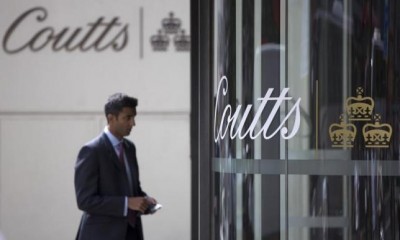
While the investigators largely appear to exonerate the banks involved in these transactions, including 1MDB’s bank Deutsche Bank, on the basis that it appears they were misled by 1MDB’s managers, they nevertheless query the banks’ failure to flag up suspicious transactions.
The banks were clearly transferring huge sums of money under highly unusual circumstances, which ought to have triggered a number of reports to the authorities.
Analysing 1MDB’s final transfer of $330 million in four cash tranches to Good Star in 2011, the investigators note that two banks committed possible offences for failing to report a number of transfers including $110 million and $125 million as possible suspicious transactions.
Their “Examination finding” on this matter includes:
“Possible offence by Bank 1 for non-reporting of USD$110 million transaction”.
“Possible breach by Bank 2 of AMLA [Anti Money Laundering Act] for not submitting Suspicious Transaction Report on 1MDB PetroSaudi”
The report adds that it is
“confirmed that banks are required to report the ultimate beneficiary (i.e. 1MDB PetroSaudi) in International Transfer Information System report not any of the intermediaries”. This leaves the banks in “possible breach of the AMLA for not submitting Suspicious Transaction Report (STR) on 1MDB PetroSaudi“, says the report.
Action by the regulators
Malaysia’s regulators have decided in the light of these investigations to approach the Swiss authorities in order to confirm that the money did indeed arrive in the Good Star account in RBS Coutts Zurich.
They are also looking for confirmation that the beneficial owner of that account was Jho Low.
If so, the British bank RBS Coutts stands equally exposed for failing to report a series of obviously suspicious transactions after receiving payments of $700 million; $160 million and $330 million between 2009-2011 into an account that had nothing to do with 1MDB.
False document
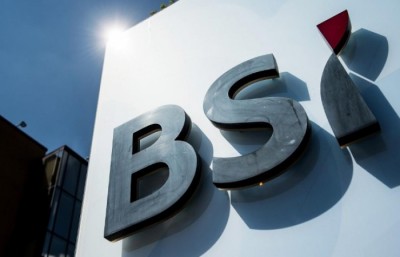
The papers also throw up a second accusation of possible falsification of documents by 1MDB.
Last week Sarawak Report revealed that the Singapore authorities had reported that an alleged bank statement submitted by 1MDB, in order to substantiate evidence about the contents of the fund’s BSI account, was in fact false according to the bank itself.
The bank denied the statement, presented to the authorities by 1MDB CEO Arul Kanda Kandasamy, was an authentic document or that it represented a true picture of the Brazen Sky account, which the PM/ Finance Minister has announced is holding USD$1.103 of the fund’s missing money.
Now the Malaysian investigators accuse 1MDB likewise of:
“making a false document (a letter to BNM [Bank Negara Malaysia]) and submitted to Bank ‘2’. This is to make Bank 2 believe that BNM was informed that [the] funds are to be remitted to the joint venture’s parent account”
The funds concerned were the USD$330 million, which passed into Good Star under the guise of providing a loan to PetroSaudi and the above statement makes clear that 1MDB had shown a false copy of a letter supposedly sent to Bank Negara to its lender bank.
In fact, it is implied that no actual letter had been submitted to Bank Negara on the matter, thereby deceiving the bank involved in the transaction.
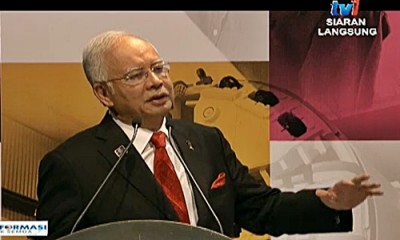
It is plain from the papers submitted by the investigators that they have recommended that the Finance Minister should authorise an approach the Swiss authorities to confirm if Good Star received the various funds and to confirm if Jho Low is the beneficial owner of the company.
They also wish to pursue the matter of:
“possible cheating and making false documents by 1MDB against Bank Negara Malaysia” and against two other banks, one of which is believed to be 1MDB’s bank, Deutsche Bank.
The investigators further wish the relevant banks to be questioned over their failures to submit suspicious transaction reports “with a view of compounding the offences if the explanations are not satisfactory”
Action or Inaction?
Yet, despite these investigations and recommendations by the authorities both within Malaysia and Singapore, the Finance Minister cum Prime Minister last night dismissed the entire series of documented revelations about 1MDB as “wild allegations”:
“”As a transparent government, I as the prime minister and the head of the leadership, with the honourable deputy prime minister and supported by the minister as wells as members of the administration, would never for a moment budge or surrender.
“Instead, we would remain steadfast and continue our struggle, charting a million new paths for the people and nation”, the Prime Minister declared in a speech designed to shore up his position against growing concerns about 1MDB’s missing billions.
In which case will he release these documents and authorise charges to be made against the transgressors identified by Malaysia’s own investigators?
[Note: Journalists have a duty to protect their sources, hence our non-disclosure as to who created this official report and who leaked the material to SR. 1MDB and the various authorities, who have also received this report, are at liberty to issue their own statements or denials – or indeed challenge us through the courts. Readers are left at liberty to reach their own conclusions based on what they read.]

